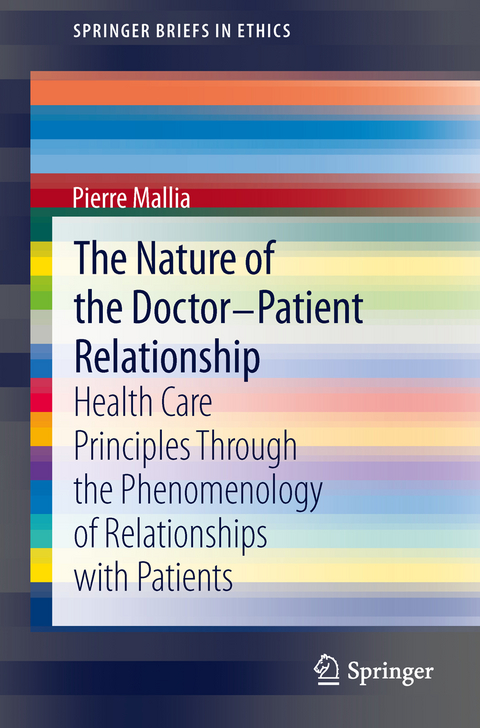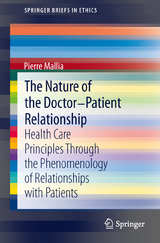The Nature of the Doctor-Patient Relationship
Introduction.- CHAPTER 1 Critical overview of principlist theories.- 1.1 The ‘Four-Principles’ Approach.- 1.1.1 Theoretical basis.- 1.1.2 The Paradigm case.- 1.1.3 The doctor-patient relationship.- 1.2 Robert Veatch’s model of Lexical Ordering.- 1.3 The Principle of Permission.- CHAPTER 2 Phenomenological roots of Principles.- 2.1 The nature of the physician-patient relationship.- 2.1.1 Communication.- 2.1.2 Goals of Medicine.- 2.1.3 The ‘care’ in Health Care.- 2.1.4 The special bond.- 2.2 The Principle of Beneficence and virtue.- 2.3 Nonmaleficence.- 2.3.1 Patient authority or trust.- 2.3.2 Epistemology.- 2.4 Respect for Autonomy.- 2.4.1 A historical and epistemological perspective.- 2.4.2 A cultural appraisal.- 2.5 The dual nature of Justice.- 2.5.1 The Justice of society.- 2.5.2 Justice in Health-Care.- CHAPTER 3 Principles as a consequence of the relationship.- 3.1 Need for grounding principles in.- the relationship.- 3.2 Defining the ontological entities.- 3.3 The physician as an entity.- 3.3.1 Levelling-down of medical relationships.- 3.3.2 Being as Understanding.- 3.4 The Patient as entity - potential for being truly-autonomous.- 3.4.1 Dimensions of the illness experience.- 3.4.2 True Autonomy and the Authenticity of the relationship.- 3.5 Hermeneutics of the relationship.- 3.6 Phenomenology of the clinical encounter.- CHAPTER 4 The principle of Justice in a secular society.- 4.1 Being-with-one-another and the Golden Rule.- 4.1.1 Being-with-one-another.- 4.1.2 The Golden Rule.- 4.2 Common Values.- 4.2.1 Implications in Bioethics.- 4.2.2 The naturalistic fallacy.- 4.3 Common morality and Being-with-one-another.- 4.3.1 Confronting rival traditions.- 4.3.2 Being-with-one-another.- CHAPTER 5 The question of social construct theories Reappraising and phenomenology of the doctor-patient relationship.- 5.1 Post-modernism and medicine.- 5.2 Socially constructed theories.- 5.3 A philosophy basedon the phenomenology of the relationship.- 5.4 The ontology of the patient, the doctor and the relationship.- 5.5 Truth concealed.- 5.6 The Clinical Encounter.- CHAPTER 6.- Conclusion.- BIBLIOGRAPHY.
| Erscheint lt. Verlag | 1.8.2012 |
|---|---|
| Reihe/Serie | SpringerBriefs in Ethics |
| Zusatzinfo | 1 Illustrations, black and white; VI, 86 p. 1 illus. |
| Verlagsort | Dordrecht |
| Sprache | englisch |
| Maße | 155 x 235 mm |
| Themenwelt | Geisteswissenschaften ► Philosophie ► Allgemeines / Lexika |
| Geisteswissenschaften ► Philosophie ► Ethik | |
| Geisteswissenschaften ► Psychologie ► Sozialpsychologie | |
| Medizin / Pharmazie ► Medizinische Fachgebiete ► Medizinethik | |
| Naturwissenschaften ► Biologie | |
| ISBN-10 | 94-007-4938-4 / 9400749384 |
| ISBN-13 | 978-94-007-4938-2 / 9789400749382 |
| Zustand | Neuware |
| Haben Sie eine Frage zum Produkt? |
aus dem Bereich




